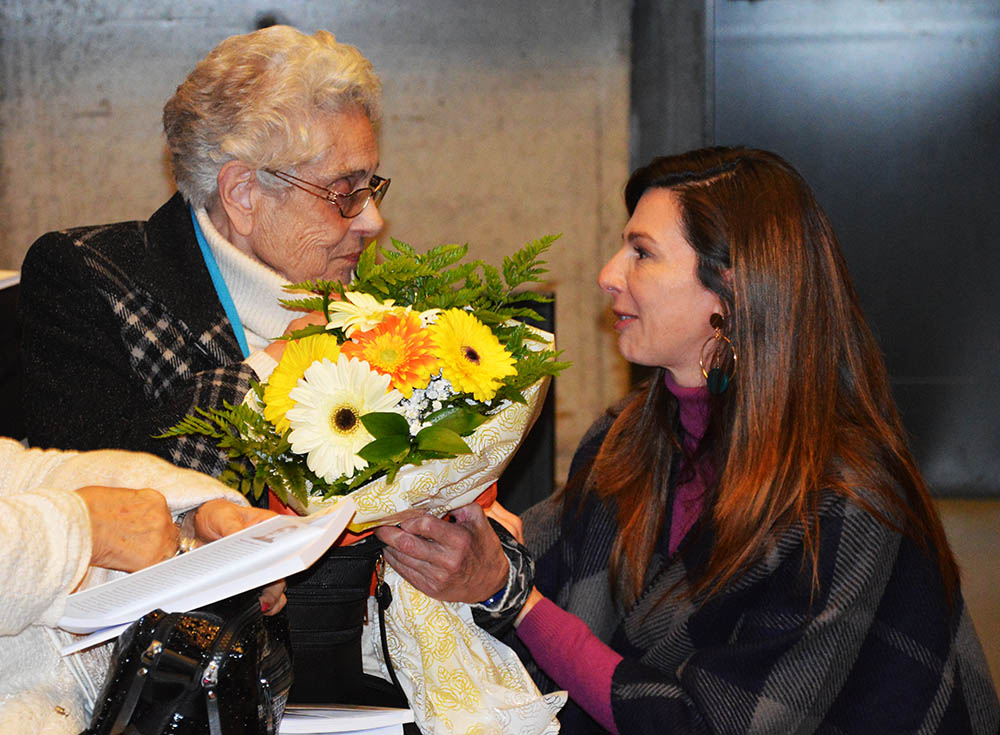 «This is a book that is more than a piece of my long life, about to reach 90 years», said Margarida Tengarrinha, at the launch, in her hometown of Portimão, of the almost autobiographical book «Memories of a Forger», which has just been edited by Colibri.
«This is a book that is more than a piece of my long life, about to reach 90 years», said Margarida Tengarrinha, at the launch, in her hometown of Portimão, of the almost autobiographical book «Memories of a Forger», which has just been edited by Colibri.
The work, which is subtitled "The Fight in Underground for Freedom in Portugal", speaks, for the first time in a deep and first-person way, of a particular aspect of clandestine life where, between the 50s and 70s of the last century , so many communist militants dived, to combat the Salazar dictatorship: the work of forgers, who produced the documents that, so often, were the difference between prison and freedom and even between death and life.
A work in which Margarida Tengarrinha and her partner José Dias Coelho were brilliantly included, both artists that the regime expelled from the Escola Superior de Belas Artes.
«In the case of the Tengarrinha-Dias Coelho couple, the construction of these other clandestine identities was experienced not only as their protagonists, but as their builders, that is, as identity forgers», says Manuel Loff, in the preface of the work.
Or, as the researcher Maria João Raminhos Duarte said at the book's launch, at the Portimão Museum, «the clandestineness will be a mark in the life of Margarida Tengarrinha», who «takes on new identities, transforms into others people (It was Marta, Beatriz, among others). Alexandre Castanheira would say that Margarida Tengarrinha another one. But, more than that, in his clandestine work, he goes beyond his person and builds other identities, being a doer of other people's identities'.
“The young couple of artists set up a fabulous document forgery device, through whose workshop the most emblematic PCP militants passed by to prepare documents for fugitives, wanted and clandestine members of the Party”, adds Maria João Raminhos Duarte.
And, in those times when technology was still rudimentary, the researcher also emphasizes, «the task and the responsibility were gigantic», having earned the Tengarrinha-Dias Coelho couple their skill as artists: «the meticulous work, truly artisanal, and the mastery of old and new techniques (linocut, woodcut, metal engraving, rubber stamps and white seals) was excellent».
With the auditorium of the his Museum of Portimão full of friends, at the launch of her work, which she said was "the last", Margarida Tengarrinha explained that "calling it a memoir is a simplified way of putting things", since what she wanted was "above all speak of those whom I call anonymous heroes».
«In the course of my life in hiding, and it was still many years, I noticed that many, many people who gave us support, who welcomed us into their homes, whose cars were at our disposal to transport us from one meeting to another, from one meeting for another, many of them – most of them even! – nor were they communists. That's why I call them friends in difficult times», said the author.
“These are people whose support for our struggle was essential for it to move forward. These are the ones that are much less known. I thought there was a lapse: talking about those who gave us invaluable support, expecting neither honor nor glory, but who did so generously, taking risks!».
These anonymous people, who "in solidarity and at great risk eased the hard life of many illegal immigrants", were "doctors, midwives, route compagnons, friends”, had already recalled the researcher Maria João Duarte.
Also anonymous heroines, in Margarida's opinion, were the families of the PIDE prisoners, who were themselves "great heroes". “But we forget that, behind them, supporting them, going on their way to prisons, going outside the country, to Tarrafal, there were families of prisoners who suffered practically as much as they did. Most of these people were not tortured. But they saw the bruises of their sons and daughters, received clothes from them in blood, placed their orders with some food and books to give them some comfort. And how many of them had their children killed, murdered. It's those people I talk to, it's them I pay tribute to». It is that, he stressed, "the families of political prisoners were also tortured… in another way."
Listen here, in full, the intervention of Margarida Tengarrinha:
The session in the Auditorium of the Portimão Museum was marked by emotion, among friends, having started with the Grupo Coral Adágio, directed by Maestro António Alves Pereira, performing, at the request of Margarida Tengarrinha, three emblematic pieces by Fernando Lopes-Graça: « Wake up!”, “A Ronda” and “A Nossa Jornada”, sung together by many of the people who filled the auditorium.
Many of these people were her former and current comrades in the struggle, longtime admirers, as well as members of the Grupo dos Amigos do Museu de Portimão, an association of which Margarida is the founder and vice-president of the General Assembly, but also employees of the Museum itself, with whom the author has generously worked, namely in the Restoration and Conservation sector.
Margarida Tengarrinha took the opportunity of the launch of her most recent book to thank those who contributed to it, stressing that "it was at the insistence of many of the Friends of the Museum of Portimão" that she wrote it. «It was your encouragement that gave me some strength to write this book, which I no longer thought to write».
“This book has many collaborators and many sponsors”, he stressed. He explicitly thanked Maria do Vale Cartaxo, his friend, who made the first and exhaustive review, as well as Silvestre Lacerda, director of the National Archive/Torre do Tombo, in whose office in Lisbon, with her help, much of the work was done. of research, or even to Manuel Loff, who signs the preface.
As he thanked Fernando Mão-de-Ferro, from the Colibri Editions, for his “huge patience, support and very particular generosity with me”.
In response, Fernando Mão-de-Ferro said he was “happy as an editor, being able to know and edit a book as important as this one by Margarida Tengarrinha”.
Margarida also spoke, with (barely) restrained emotion, of her daughters Teresa and Guida, “who give me all their support, overcoming resentments for the years of forced separation and for the long and painful absence, difficult to fill”.
On the other hand, Isilda Gomes, mayor, after calling the author "a piece of our history", stressed that "books like this are very important, because many of today's young people think that this was all an invention, that it was very easy of achieving Democracy, that it has already appeared just as we have it, all of a sudden». And José Gameiro, scientific director of the Portimão Museum, to whom, as he pointed out, Margarida Tengarrinha is “intimately linked”, especially evoked the friendship that unites them.
Is it possible to write these memoirs, also recalling such remarkable episodes at a personal level, such as the terminal illness of his mother, who he could not accompany because he was already in hiding, the separation from his daughters or the brutal death of his partner José Dias Coelho, who died the shooting by the PIDE, in a street in Lisbon, on the eve of Christmas 1961, was it a kind of catharsis for Margarida Tengarrinha?
In her brilliant presentation, historian Maria João Duarte spoke about this. «In Greek mythology, treating memory and curing the traumatic experiences it carries was, precisely, one of the objectives of history. Paul Ricoeur tells us that, in order to allow the past to give way to the present and the future, it is important to do “memory work”. That's what Margarida Tengarrinha does in “Memories of a Counterfeiter”. It's not an easy task. The philosopher compares it to a true “work of mourning”».
But, emphasizes Maria João Duarte, «History and memory are not, however, the same thing. Memory is based on a lived experience of a past that left its marks on the actors, while History is the knowledge and interpretation of this reality, through all available sources. Therefore, History has a role of fairness and truth, to temper the exclusivity and fidelity of particular memories. History can contribute to transforming an unhappy memory into a pacified memory».
«The work of recovering and fixing memories is, therefore, a double work of remembering and mourning, which ensures the link between the past and the future, as well as the relationship between generations. Margarida Tengarrinha learned this intuitively and, in good time, began her memorial writing. It does it for itself, out of an imperious necessity, but it ends up contributing to the collective rescue of the memory of the Dictatorship, so often trivialized and whitewashed».
Listen here, in full, the presentation of Maria João Raminhos Duarte:
What about the book “Memories of a Counterfeiter” and the stories it tells, some of them unpublished? It will be up to the reader to discover, throughout its approximately 180 pages, illustrated with photographs and images that, in most cases, are shown here for the first time. The story that is told, this one, can perhaps be summed up in two sentences that the author writes: "We were young and we wanted a better world", "we were young and we wanted Freedom".
The book, which costs 12 euros, can now be purchased on the website of Colibri Editions, by clicking here.
Photos: Elisabete Rodrigues | Sul Informação
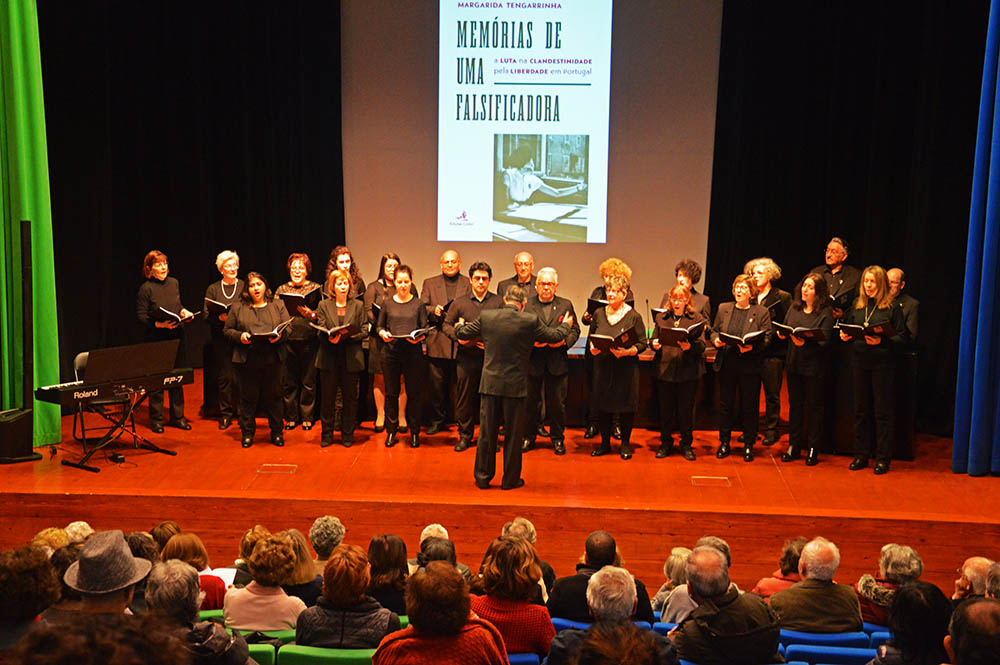
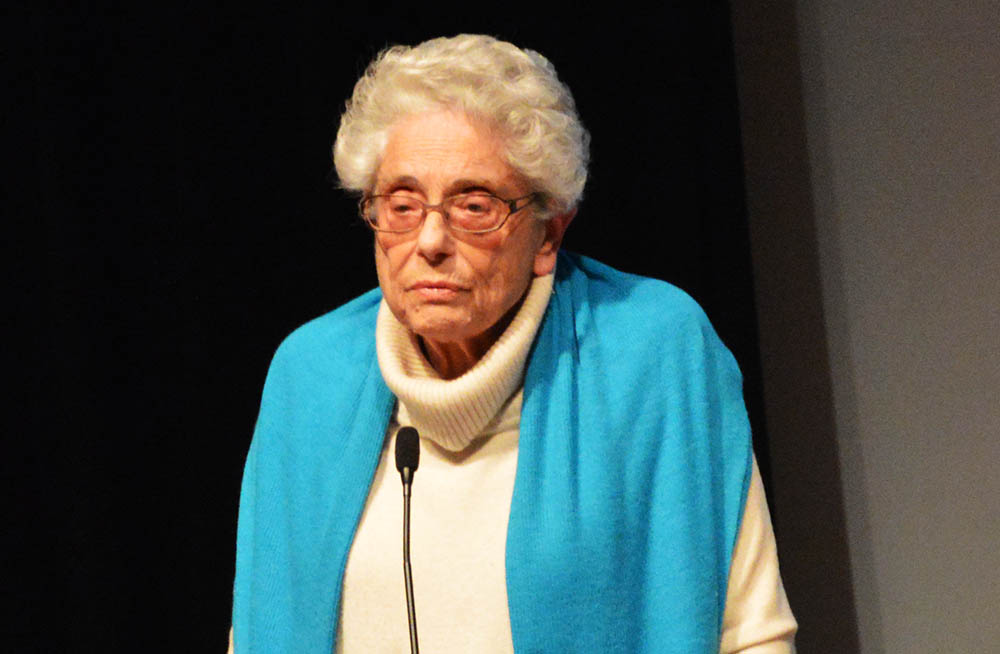
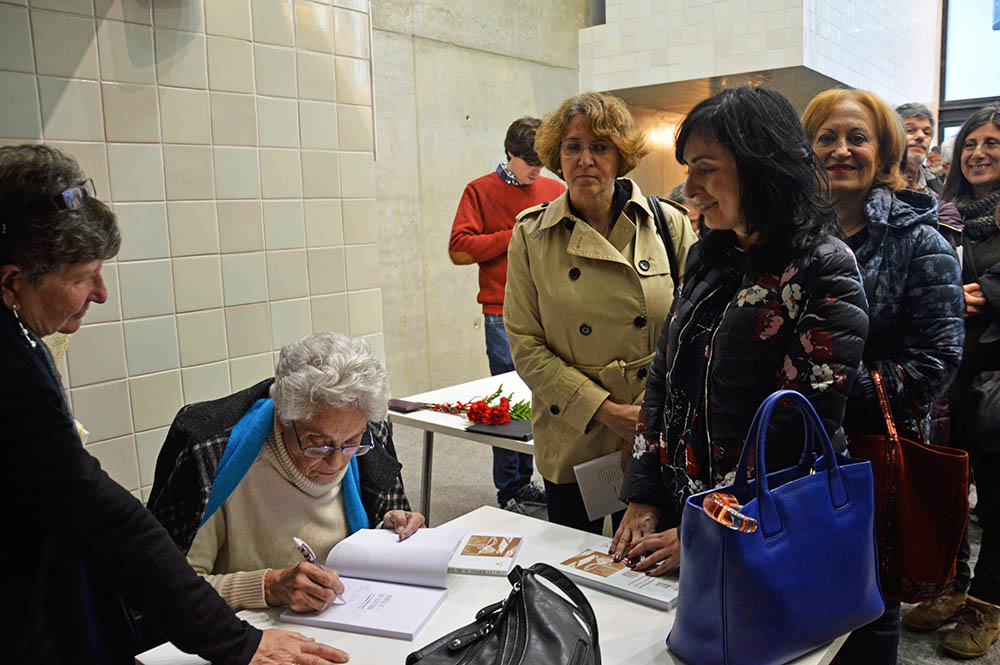
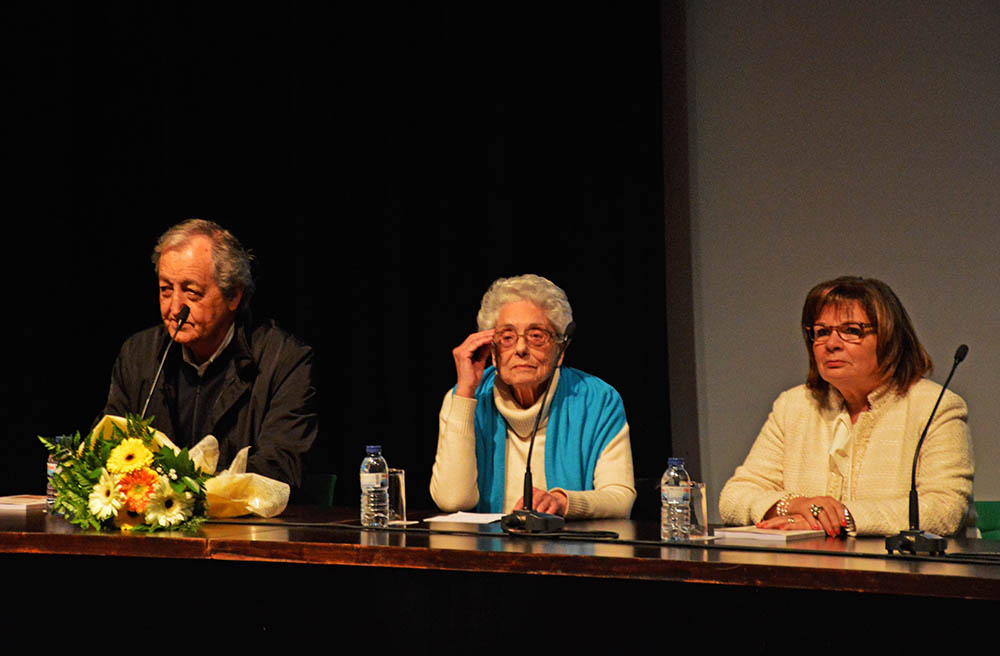
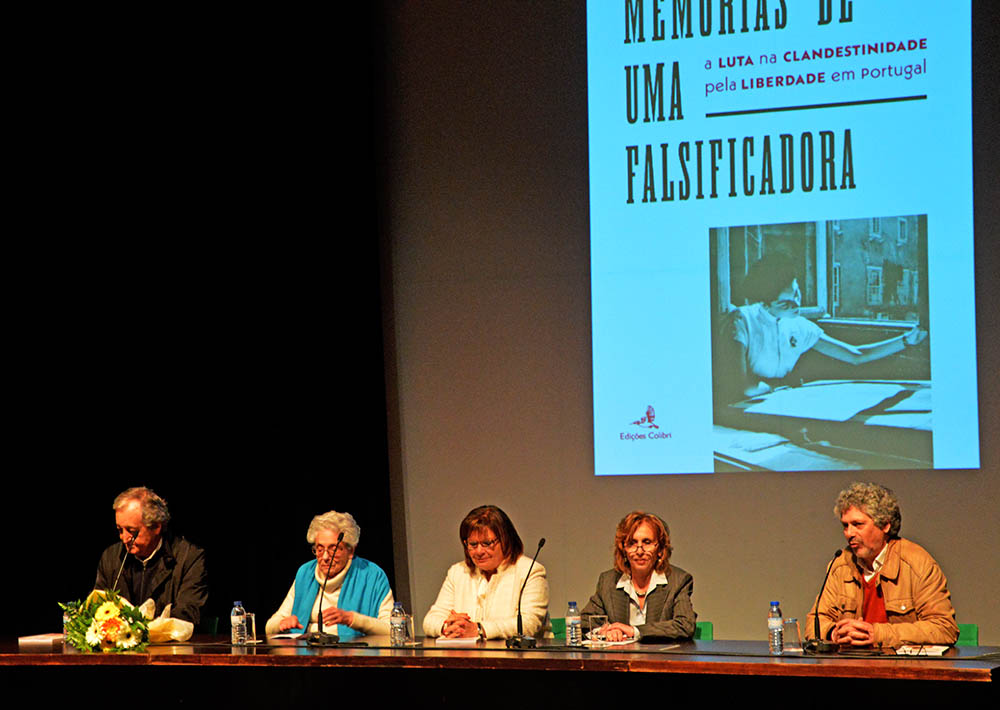
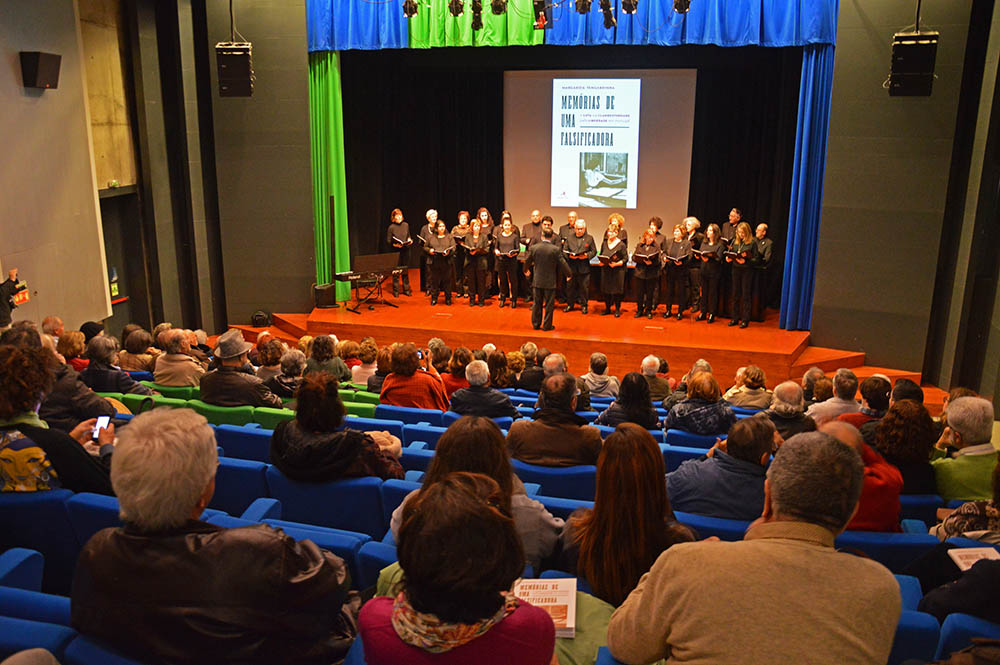
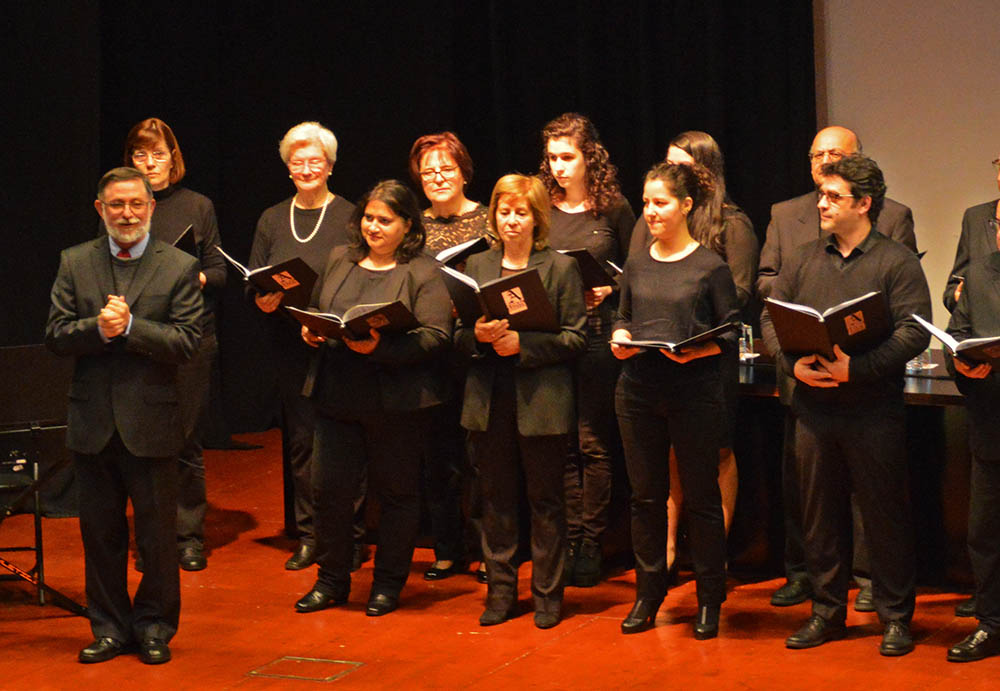
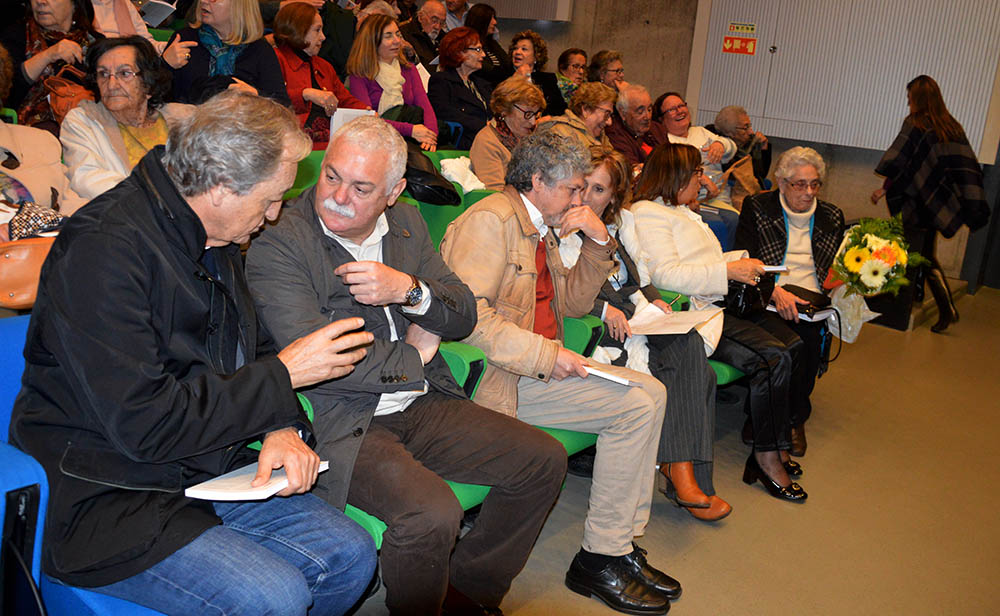
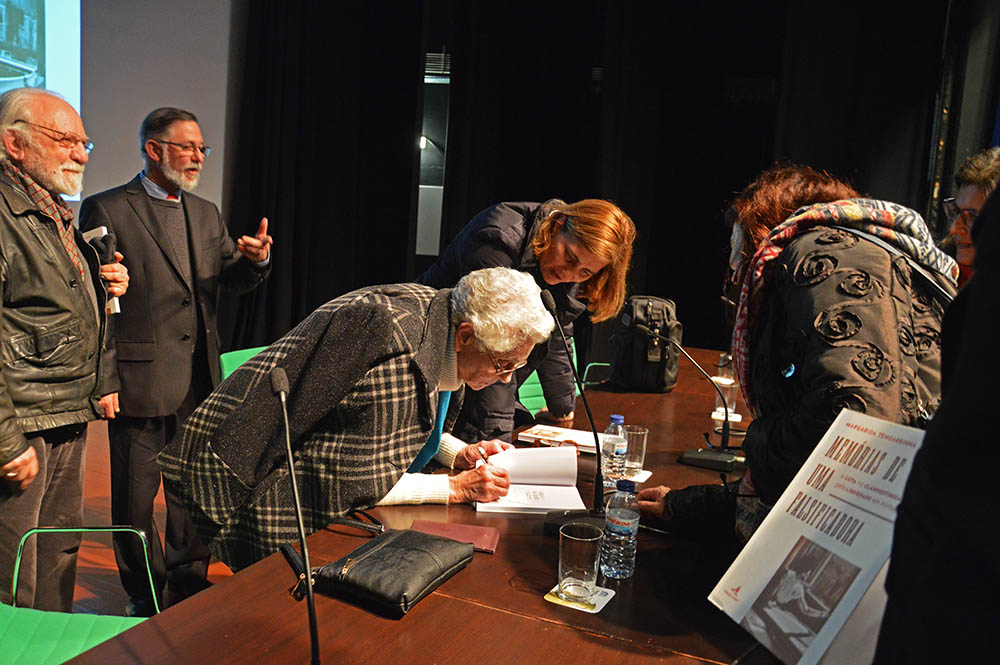
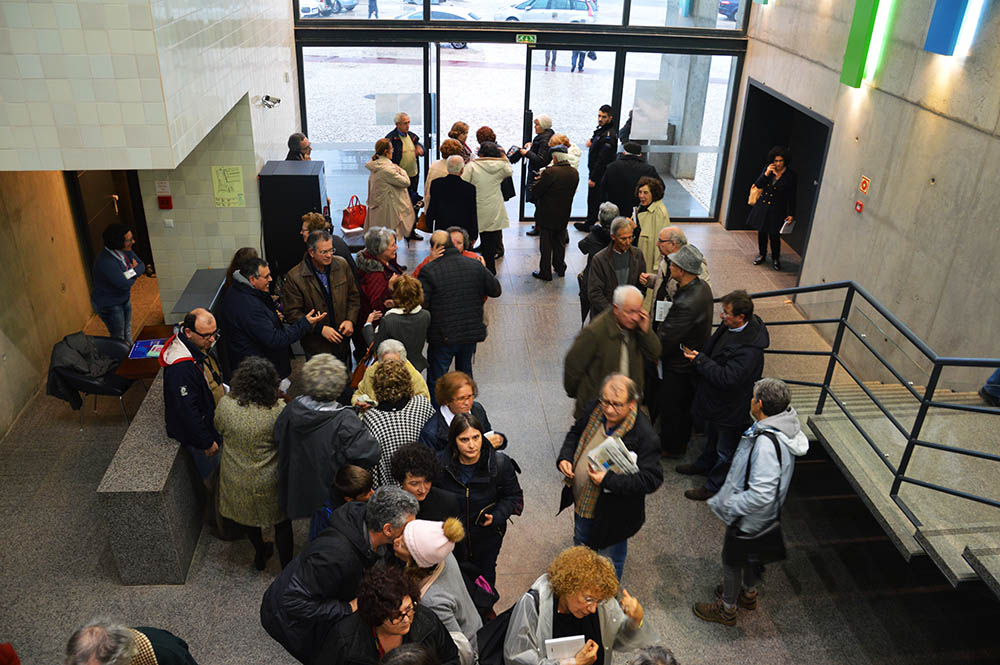
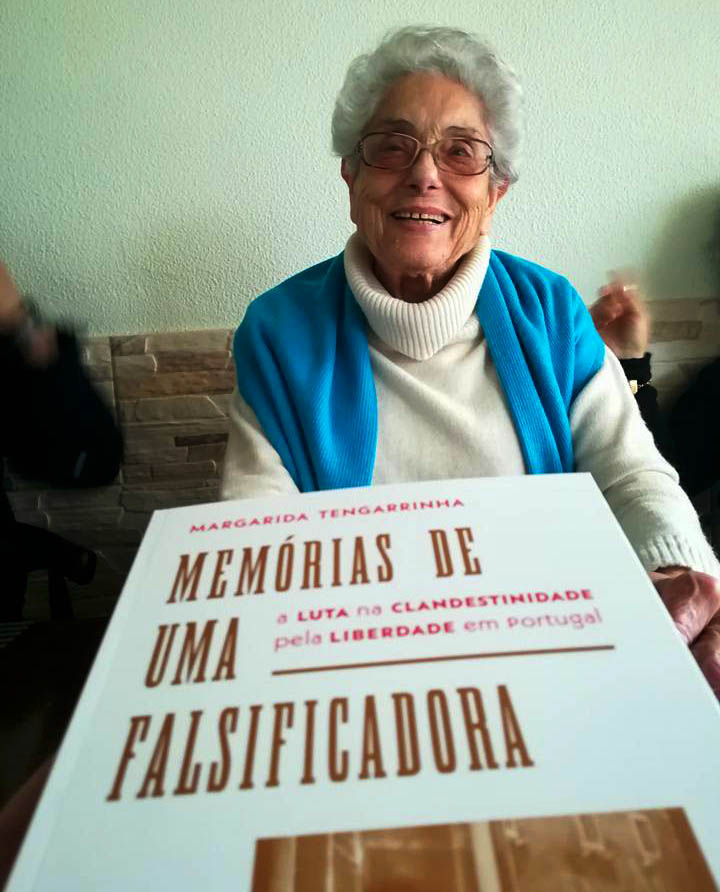
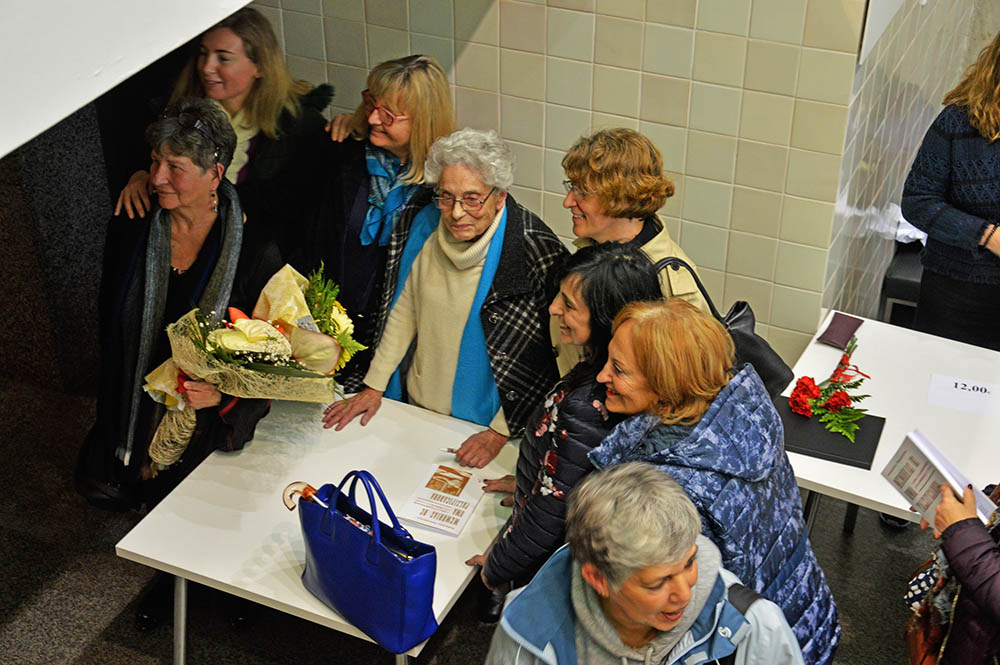
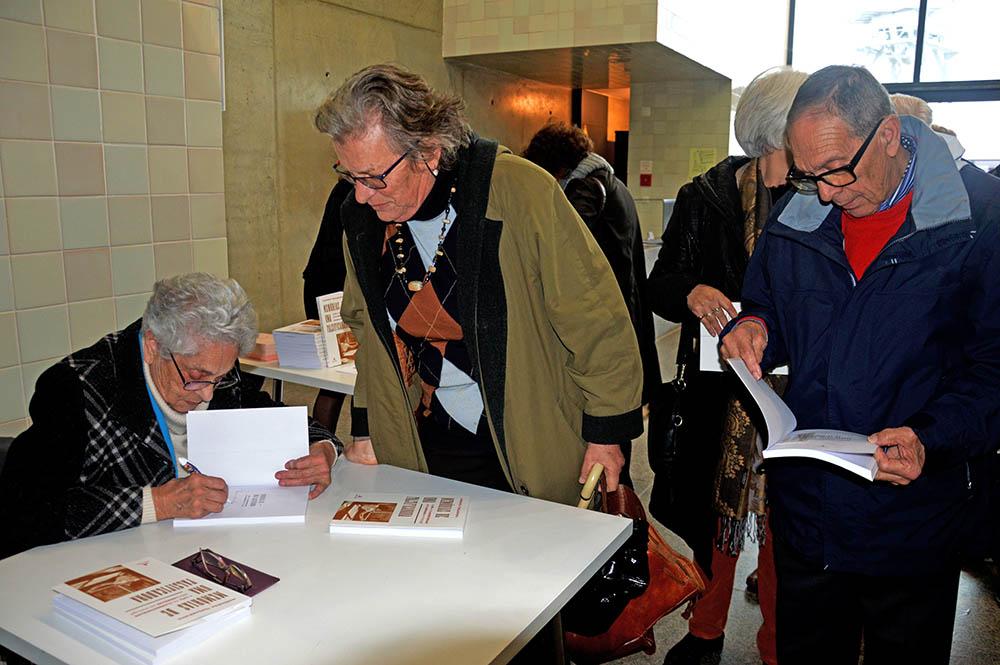


















Comments